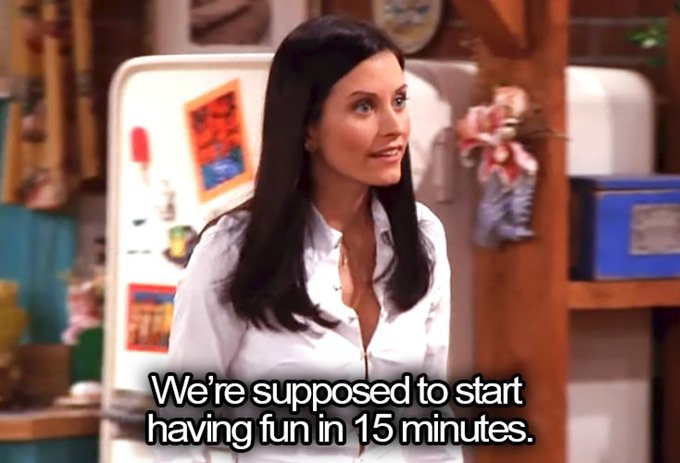By Kavita Dehalwar
Setting goals is the first step towards turning the invisible into the visible, as Tony Robbins famously said. Yet, along the journey towards achieving those goals, one often encounters numerous hurdles and obstacles that can hinder progress. Understanding these potential roadblocks is crucial for navigating them effectively. Here, we delve into some common factors that could interfere with your goals and how to overcome them.
- Lack of Clarity: Unclear goals can be a significant hindrance. If you’re unsure about what you want to achieve or why you want to achieve it, you’re more likely to be derailed by distractions or lose motivation along the way. Take the time to define your goals clearly, making them specific, measurable, achievable, relevant, and time-bound (SMART).
- Fear of Failure: Fear can paralyze even the most well-intentioned individuals. The fear of failure often stems from a concern about what others might think, a lack of self-belief, or a fear of stepping out of one’s comfort zone. Recognize that failure is a natural part of the learning process and a stepping stone towards success. Embrace it, learn from it, and keep moving forward.
- Procrastination: Putting off tasks until later is a common habit that can impede progress towards your goals. Procrastination often arises from a combination of perfectionism, lack of motivation, or feeling overwhelmed. Combat procrastination by breaking your goals down into smaller, more manageable tasks, creating a schedule or to-do list, and eliminating distractions.
- Negative Self-Talk: The voice in your head can either be your greatest cheerleader or your harshest critic. Negative self-talk can erode confidence, diminish motivation, and lead to self-sabotage. Practice self-awareness and challenge negative thoughts by replacing them with positive affirmations and focusing on your strengths and past successes.
- Lack of Resources: Whether it’s time, money, skills, or support, a shortage of resources can pose a significant obstacle to achieving your goals. Identify the resources you need and explore creative ways to acquire or leverage them. This might involve seeking out mentors or collaborators, investing in self-education, or finding alternative solutions.
- External Distractions: In today’s hyper-connected world, distractions abound. From social media notifications to unexpected interruptions, external distractions can derail your focus and productivity. Set boundaries, establish a conducive work environment, and practice mindfulness to stay present and focused on your goals.
- Unforeseen Circumstances: Life is unpredictable, and unexpected events can throw a wrench into even the best-laid plans. Whether it’s a sudden illness, a family emergency, or a global crisis, unforeseen circumstances can force you to reassess your priorities and adjust your goals accordingly. Cultivate resilience and adaptability to navigate these challenges with grace.
- Lack of Accountability: Without being held accountable, it’s easy to lose sight of your goals or slack off when faced with obstacles. Find an accountability partner, coach, or mentor who can provide support, encouragement, and accountability along your journey. Regular check-ins and progress tracking can help keep you accountable and motivated.
- Perceived Limitations: Sometimes, the only thing standing in the way of your goals is your own limiting beliefs. Whether it’s a belief that you’re not good enough, smart enough, or deserving enough, these self-imposed limitations can hold you back from realizing your full potential. Challenge these beliefs, expand your comfort zone, and adopt a growth mindset that embraces challenges and sees failures as opportunities for growth.
- Lack of Persistence: Rome wasn’t built in a day, and neither are most goals achieved overnight. Persistence is key to overcoming obstacles and staying the course, even when the going gets tough. Cultivate resilience, stay committed to your goals, and remember that every setback is just a temporary detour on the road to success.
In conclusion, while the path to achieving your goals may be fraught with obstacles, it’s important to remember that each challenge presents an opportunity for growth and learning. By recognizing these potential barriers and implementing strategies to overcome them, you can stay focused, motivated, and ultimately, achieve success in pursuit of your goals.
References
Burton, D., & Weiss, C. (2008). The fundamental goal concept: the path to process and performance success.
Dehalwar, K., & Singh, J. (2016). Challenges and strategies for the improvement of water management in Bhopal. European Scientific Journal, 12(2).
Godshalk, V. M., & Sosik, J. J. (2003). Aiming for career success: The role of learning goal orientation in mentoring relationships. Journal of vocational behavior, 63(3), 417-437.
Hall, D. T., & Foster, L. W. (1977). A psychological success cycle and goal setting: Goals, performance, and attitudes. Academy of Management Journal, 20(2), 282-290.
Johnson, D. W., Johnson, R. T., & Stanne, M. B. (1989). Impact of goal and resource interdependence on problem-solving success. The Journal of Social Psychology, 129(5), 621-629.
Locke, E. A. (1967). Relationship of success and expectation to affect on goal-seeking tasks. Journal of personality and social psychology, 7(2p1), 125.
VandeWalle, D. (2001). Goal orientation:: Why wanting to look successful doesn’t always lead to success. Organizational Dynamics, 30(2), 162-171.


















You must be logged in to post a comment.